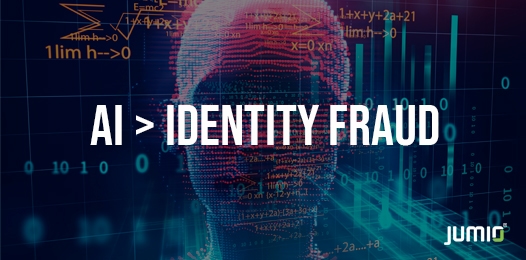
Back in December, 4iQ discovered a single file with a database of 1.4 billion clear text credentials — the largest aggregate database found in the dark web to date. The really scary part was that none of the passwords were encrypted, and the ones that have been tested have been verified to be valid.
This is bad news for all of us.
A recent report published by cybersecurity firm Shape Security showed that 80% to 90% of the people that log in to a retailer’s e-commerce site are hackers using stolen data. Unsurprisingly, cyber criminals take the path of least resistance. They simply buy the stolen credentials from data breaches from the dark web to create bogus accounts and access privileged networks. Clearly, passwords alone are not enough.
Unfortunately, other traditional forms of authentication, including knowledge-based authentication and two-factor authentication, aren’t cutting it either—both methods have proven insecure and unreliable.
Fortunately, thanks to advances in artificial intelligence (AI), companies are gaining the upper hand when it comes to online identity verification.
A New Era for AI and Online Identity
How can modern companies evolve beyond usernames and passwords? When identity matters (e.g., a home rental, creating a new bank account, transferring fund from one account to another), companies must add a layer of real world ID/identity verification to ensure that the person using the username and password is indeed the person who owns the account. And that’s where AI can play an important role.
Machine learning and deep learning algorithms are ushering in a new era where identity authentication delivers a smooth experience that doesn’t require users to trade convenience for security. These technologies are increasingly being leveraged for online identity verification to protect consumers and businesses against fraud and account takeover.
AI, machine learning, and deep learning are extremely adept at discerning between real and fraudulent IDs. Identity documents, such as driver’s licenses and passports, are scanned to test various elements of an ID including the presence of genuine microprint text and other embedded security features and biometrics or facial recognition to link the individual to the ID credential.
Machine learning creates a more efficient and accurate process than relying on an untrained human to examine and verify an ID. Over the last four years, Jumio has been developing computer models and machine learning algorithms that are constantly learning and correcting itself by processing millions of transactions and leveraging verification experts to inform whether the algorithms got it right. Call it real-time course correction.
Because IDs are physical documents, they’re subject to wear and tear, and may even possess manufacturing discrepancies. Plus, the way those IDs—driver’s licenses, passports, and ID cards—are captured is fraught with challenge. In some cases, the quality of the camera built within a laptop does not always provide sufficiently high resolution to read all of the information on the ID. In other cases, the user takes a blurry picture of their ID or snaps a picture in dim or suboptimal lighting. In these cases, which happen way more often than you’d think, the very best machine learning algorithms will be tested.
The Launch of Jumio AI Labs in Montreal
At Jumio, we’ve been exploiting the power of AI to perform three vital functions related to online identity verification: data extraction, fraud detection, and risk scoring. Jumio is helping banks, payment platforms, sharing economy, telcos, and others better verify the identities of people with whom they do business (in part because of Know Your Customer regulations, but also because of the immense amount of fraud that has arisen in the last few years).
Artificial intelligence is still in its infancy and we’re just scratching the surface. That’s why we are aggressively pushing the envelope by opening Jumio AI Labs in Montreal, where we’re expanding our AI leadership by developing models to dramatically improve identity verification accuracy and verification speed.
Jumio enjoys a big AI head start because of the volume of verifications it processes on a daily basis and this advantage is being exploited to improve the predictive power of our machine learning algorithms. If the AI models for passing or failing IDs were based on only a few samples (for example, a handful of Nepalese passports), many real IDs would fail the test.
AI Labs is dedicated to creating, productionalizing, and refining these supervised models. In fact, artificial intelligence has already been operationalized to reduce the time it takes to verify an ID which, in turn, helps reduce abandonment rates and increase new account conversions for our customers. In fact, Jumio’s AI models have reduced the average customer transaction time by 7%, with more significant reductions planned for later this year.The journey has only just begun, but we’re committed to driving innovation, best practices, and breakthroughs though AI, machine learning, and deep learning.
To learn more about the launch of Jumio’s AI Labs, check out our recent press release.
